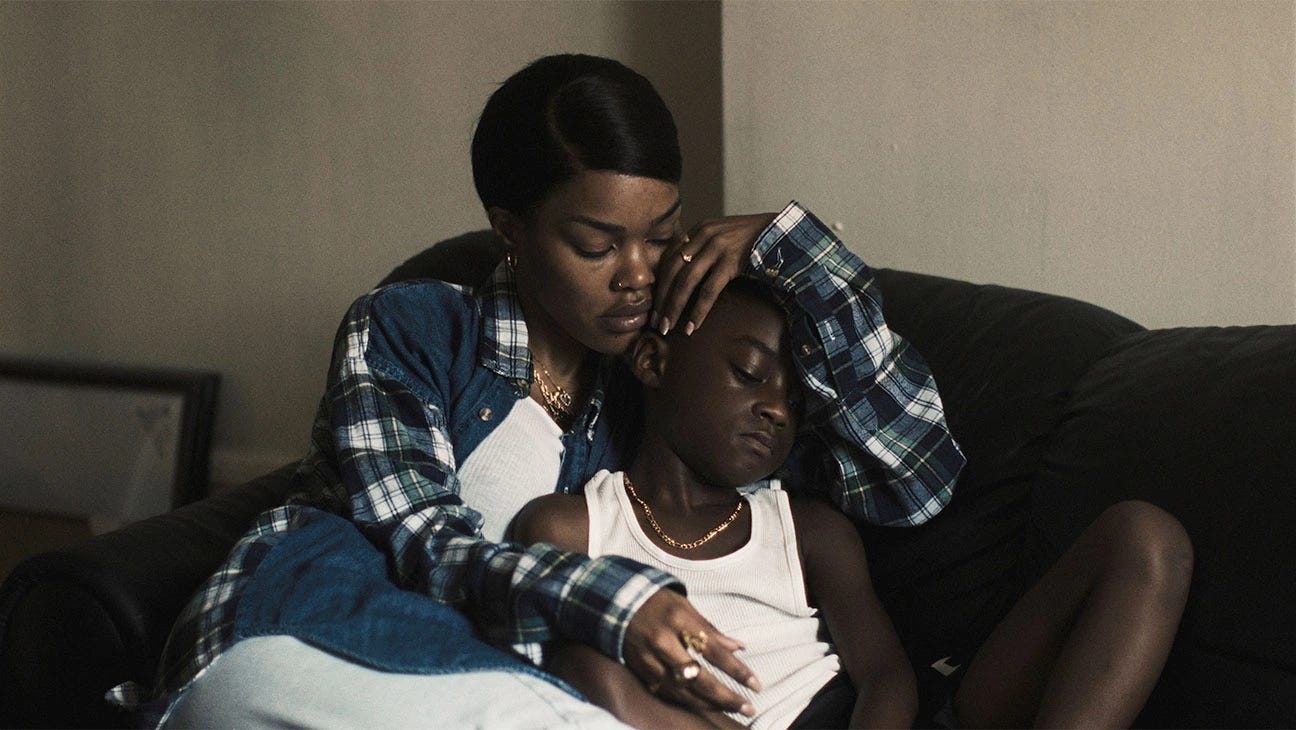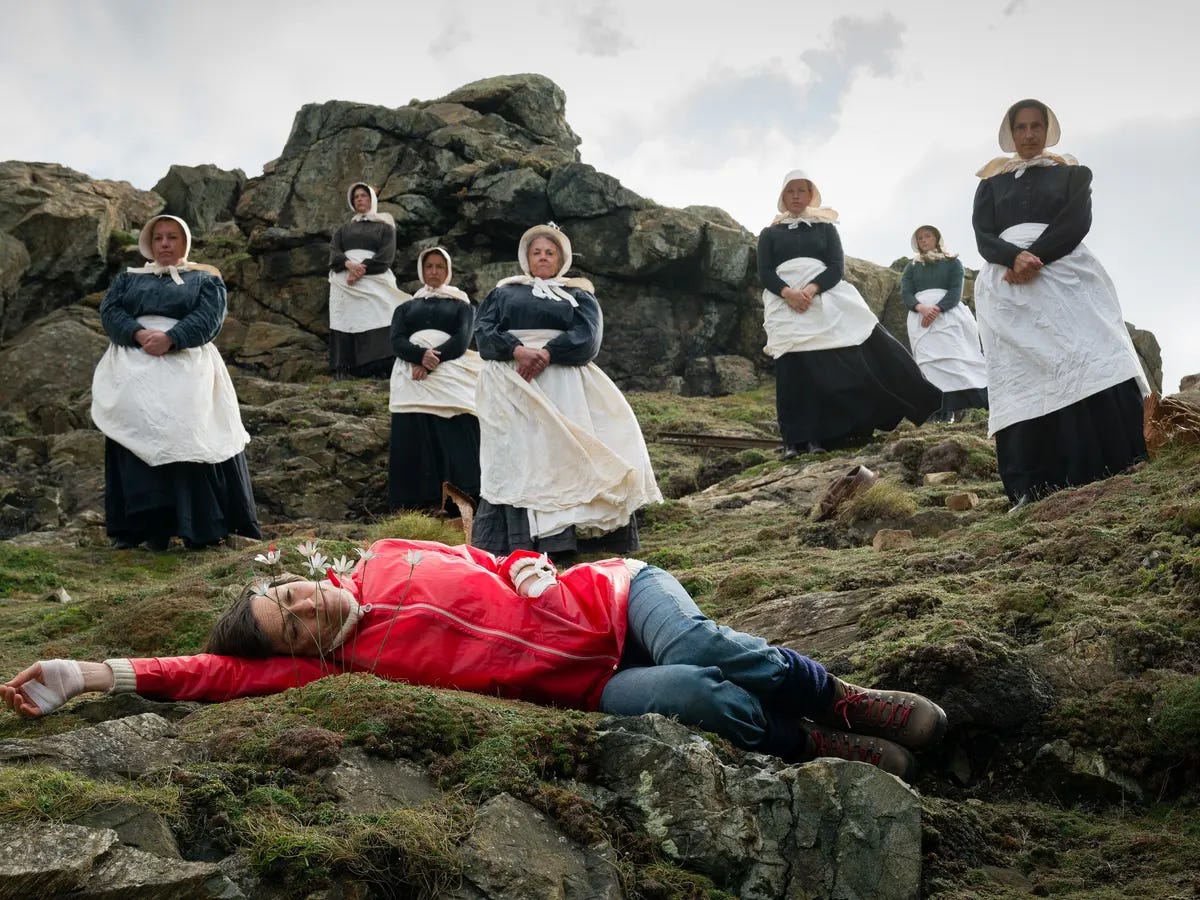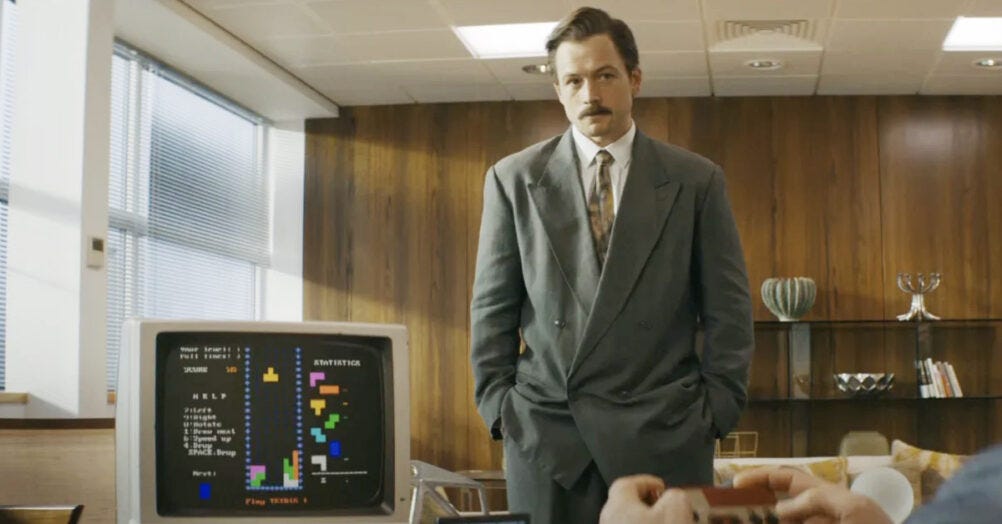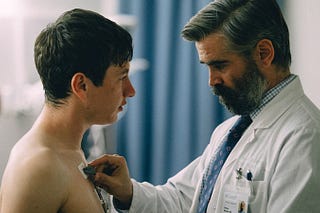
In Review: 'A Thousand and One,' 'Rye Lane,' 'Enys Men,' 'Tetris'
This week's reviews include this year's Sundance Grand Jury Prize winner, a charming rom-com and an unsettling horror film from Britain, and a video game origin story.
A Thousand and One
Dir. A.V. Rockwell
116 min.
A Thousand and One, the first feature from writer-director A.V. Rockwell, opens at the prison on New York’s Rikers Island and though it doesn’t stay there for long, the film never really stops being about the difficulty of escaping from various forms of confinement. Released from prison in the film’s early scenes, Inez (Teyana Taylor), a hair stylist and occasional thief, returns to the Brooklyn neighborhood where she lived before her time at Rikers. There she renews acquaintances and picks up what remains of her old life but finds herself haunted by Terry (Aaron Kingsley Adetola) the six-year-old child she left in foster care when she was arrested. A sullen, distant boy, Terry wants nothing to do with Inez, but when he’s injured trying to escape foster care, Terry warms to her in the hospital. Spotting an opening, Inez abducts him and tries to start a new life in Brooklyn.
Getting away with kidnapping proves surprisingly easy. Figuring out what to do next does not, and A Thousand and One never shies away from depicting Inez’s many shortcomings as a mother. She takes a job at a nursing home to earn an honest paycheck, but doing so means leaving Terry home alone all day, a scene Rockwell lets play out at length as the bored kid makes messes, watches TV, and otherwise tries to pass the time. Rockwell fills the film with scenes that depict the stark conditions in which Terry grows up, even after he and Inez find an apartment of their own. (The film’s title comes from their apartment number, “10 - 01,” but the dash has fallen off never to be replaced.) Similarly, Taylor does nothing to make Inez likable. She’s short-tempered, foul-mouthed and makes a series of dubious choices. But Taylor, in an intense, vanity-free performance, also makes the character burn with a desire to protect Terry. It’s what defines her.
Beginning in 1994 before moving on to 2001 and 2005 (Aven Courtney and Josiah Cross play Terry at 13 and 17, respectively), A Thousand and One depicts how hard it is be Black, marginalized, and trying to raise a kid in New York, even without the constant threat of being found out for a past crime. Optimistic speeches from Giuliani and Bloomberg play out as ironic counterpoints to the world in which Terry is growing up, one in which gentrification and stop-and-frisk policing are constant threats. There’s not a lot of narrative urgency pushing the film along for much of its running time, with Rockwell focusing instead on the details of Terry and Inez’s lives. She also steers away from clichés. When a fellow ex-con named Lucky (Will Catlett) comes to stay, it seems obvious where the film is going. Instead it takes a more complicated path to a different destination.
A Thousand and One is grounded in realism but with no interest in miserabilism. Terry turns from a shy boy into a sensitive kid, then a fragile but gifted and ambitious teen (Cross is a particular standout). He keeps beating the odds, but only barely, and maybe not forever. When a final act revelation makes the film take a turn for Sirkian melodrama, it doesn’t so much cast what’s come before in a different light as a brighter one. For Terry to get as far as he’s gotten has meant having someone on his side no matter what, even if it’s someone figuring out how to be a mother on a daily basis. —Keith Phipps
A Thousand and One opens widely tonight.
Rye Lane
Dir. Raine Allen-Miller
82 min.
A refreshing cloudburst in the middle of our ongoing rom-com drought, Rye Lane opens with the opposite of a meet cute. While using a unisex restroom at an art opening, Yas (Vivian Oparah), a seemingly free-spirited twentysomething, strikes up a conversation with Dom (Industry’s David Johnson) as he weeps in the adjacent stall. After exiting, relieved to remove herself from the encounter, she takes in the art, then recognizes a familiar-looking pair of pink Chuck Taylors from her recent encounter — but strikes up a conversation with Dom anyway. Maybe she figures he needs a friend no matter how awkward a time it is to strike up that friendship. Maybe she realizes she needs one.
Whichever the case, Yas decides to stick by Dom’s side as he walks through the vibrant, multicultural South London neighborhoods of Brixton and Peckham. “Sometimes you just gotta see what happens,” Yas tells Dom, with a confidence that suggests she lives by these words. Except that’s not quite the whole story. Over the course of their day-long amble, Yas and Dom get to know each other, slowly revealing their heartbreaks and insecurities between stops related to romantic break-ups that still haunt them, Yas no less than Dom, even if she’s past the crying-on-the-toilet phase of her heartbreak. They also start to recognize an attraction between them that’s only growing as day turns into night.
Written by Nathan Byron and Tom Melia (veterans of British TV as writers and actors) and directed by a debuting Raine Allen-Miller, Rye Lane is a low-stakes, high-energy charmer. Making extensive use of wide-angle lenses, Allen-Miller focuses the frame on the protagonists but fills the margins with action that suggest a neighborhood where something’s always happening, be it skateboarding kids or busybodies peering out a window. (There’s a reason the film takes its title not from the characters or the plot but from a street where key action unfolds.)
Richard Linklater’s dialogue-heavy Before films are an obvious inspiration, but so is Scott Pilgrim vs. the World. Rye Lane keeps finding creative ways to dramatize the stories Yas and Dom tell each other—sometimes stretching the truth in the process. When Yas recounts how she broke up with her boyfriend, for instance, she does so in front of a crowd of Dom doppelgängers who cringe as they watch the scene unfold. Such moments push the film near cartoon territory, and the film plays almost every other character but Dom and Yas as broad caricatures, yet Rye Lane makes the contrast between the central couple’s growing attraction and the world outside their bubble of two work. They’re complementary souls who’ve found each other in the middle of an absurd, sometimes heartbreaking, sometimes beautiful world. Maybe it’s one in which they can just see what happens together. —Keith Phipps
Rye Lane debuts on Hulu tomorrow.
Enys Men
Dir. Mark Jenkin
91 min.
On an otherwise unoccupied island off the Cornish coast, an unnamed woman, referred to in the credits as The Volunteer (Mary Woodwine), sets about her daily routine. She trudges around the rocky terrain in her work boots, drops a rock into the abyss of an empty mineshaft, checks the supplies at her cottage, and turns on a small generator so she can light the electric stove under her tea kettle and listen to the hissing transistor radio for messages from the mainland. But her primary obsession is a small outcropping of flowers on a cliffside, for which she carefully monitors the temperature and any observable developments. Most days, her journal notes “no change” in the temperature or the flowers. Then there’s a change.
And so begins the vibes-based experimental horror of Mark Jenkin’s Enys Men, which evokes and evokes while strategically refusing to define. Shot in 16mm, the film looks like the rediscovered canisters of a folk-horror obscurity from 50 years ago, rescued from some dusty archive that’s aged its grainy footage like wine in a vault. It has a rich, distinctive flavor profile, with notes of Don’t Look Now, The Wicker Man and Straw Dogs, but an incomparable acidity.
What actually happens in Enys Men is up for debate. The title is Cornish for “stone island,” and at least one standing stone has an eerie significance, like the monolith in 2001: A Space Odyssey.We know from The Volunteer’s log that the film takes place in 1973, and we can see that the flowers become infected by a lichen that seems to have a psychotropic impact on her. Various ghostly figures emerge in the present, suggesting shipwrecks and a suicide and at least one torrid tryst, but Jenkin leaves the audience to piece together the narratives he might be suggesting. There is never any moment when connections are clarified, and any conventional storytelling is replaced by an escalation of intensity.
Jenkin’s confidence that the imagery and jagged rhythms of his film, along with Woodvine’s extraordinarily expressive face, will carry Enys Men forward without a narrative engine is wholly justified. Once you accept the notion that hard answers to your questions are not forthcoming, the film casts a unique spell, with the sum of all these hauntings adding up to a vivid portrait of grief and loneliness. Alone on an island that seems like a reflection of her conscience, if not a manifestation of it, The Volunteer can’t suppress the past tragedies that puncture whatever solace she might have hoped to find. — Scott Tobias
Enys Men opens in limited release tomorrow.
Tetris
Dir. Jon S. Baird
118 min.
The story of how the rights to Tetris were secured amid the chaos and uncertainty of the Soviet Union in the late 1980s is genuinely astounding, stranger-than-fiction, made for the movies. But the makers of Tetris, a misbegotten whatsit for Apple TV+, appear never to have settled on how they wanted to tell it. Is this a wacky, cartoonish comedy about a businessman who improvises his way through waves of Soviet apparatchiks and goons, armed with little more than a cheap suit, a tourist visa and a dream? Or is it a Cold War spy thriller that uses the seemingly frivolous origins of a popular video game to illustrate the clash between capitalism and communism in Glasnost-era Russia? It cannot be both! A lane must be chosen!
And yet, director Jon S. Baird (Stan & Ollie) and his screenwriter, Noah Pink, have not decided what they wanted Tetris to be, so what they’ve come up with is distracting in its best moments, actively ridiculous in its worst. The most promising avenue for the film is as a self-aware, Coens-esque throwback to ’80s tech thrillers like WarGames, and the mustachioed Taron Egerton, as a naive entrepreneur making deals with the multiple devils, seems up to the task. Baird and Pink also do a fine job spinning entertainment out of a series of confusing contract negotiations, as rights to the computer, console, arcade and handheld version of the game are all up for grabs and nefarious players on both sides are scrambling for a piece.
In fact, the backroom finagling over numbers and line items turns out to be more exciting than the manufactured spy games and car chases that occasionally bust out into the open. To justify these bursts of action, Baird offers the cutesy framing of Tetris as a 16-bit gaming adventure with Henk Rogers (Egerton), a Dutch video game designer and businessman, as its hero, risking multiple lives on a quest for the ultimate prize. While promoting his own doomed game at the 1988 Consumer Electronics Show in Las Vegas, Henk catches a glimpse of Tetris at a nearby booth and immediately grasps its potential. When he makes queries about the game, he’s told that its creator, Alexey Pajitnov (Nikita Efremov), is a Russian who’d put together a crude, graphics-free version that was already a sensation in the country. But international multi-platform rights were murky at best.
Risking the future of his small company and his family’s home in Tokyo—not to mention the possibility of missing his daughter’s recital, the gravest of all movie-dad sins—Henk flies to Moscow on a tourist visa, which forbids him from the business he intends to do. He immediately attracts hostile interest from Soviet agents and learns that the rights he already thought he had on the Japanese console version of Tetris are totally invalid. But with the groundbreaking Nintendo GameBoy on the horizon, Henk will not be discouraged, despite working at a major disadvantage from other competitors, including a seasoned expert (Toby Jones) in Russian game dealmaking and a British multinational corporation led by publishing magnate Robert Maxwell (Roger Allam) and his arrogant failson Kevin (Anthony Boyle).
The most conspicuous problem with Tetris is how easy it becomes to separate the outrageous events that actually happened and the movie bullshit that’s been inserted for the sole purpose of goosing up the action. A whiff of insecurity dogs the film, as if its creators lacked confidence that the real story would be compelling enough on its own. That turns out to be a huge miscalculation, especially in a climax that departs from reality so absurdly that it feels like an insult to the audience’s intelligence. We can handle the truth. — Scott Tobias
Tetris starts streaming exclusively on Apple TV+ tomorrow.
























One additional, non-spoilery detail I particularly enjoyed from Enys Men: not only does it take place in 1973, but the dates in The Volunteer's log show that it takes place in late April/early May 1973, i.e. the exact timeframe of The Wicker Man.
Enys Men is definitely on my agenda for tomorrow night. I've been anticipating that one ever since I saw its evocative trailer some months back. I'm also going to be seeing Quentin Dupieux's Smoking Causes Coughing, which should make for an interesting co-feature.